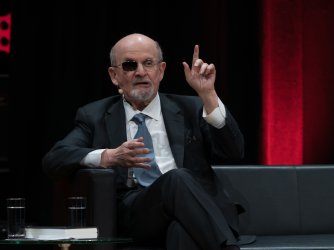Table of Contents
After Backlash, Skyline College Apologizes for ‘Badly Worded’ Media Policy

Students and faculty at Skyline College in California swiftly and strongly objected to the public community college’s media policy after faculty were sent a reminder about it via email on March 12. The policy requests that staff not speak with journalists directly but instead refer questions to Cherie Colin, Skyline’s Director of Marketing, Communications and Public Relations. Under heavy criticism, administrators have apologized and pledged to reevaluate the policy.
The media policy states:
If you are approached by Media to discuss any program services, policies or occurrences on the Skyline College campus, please request the reporter submit their questions to you in writing. Please forward the questions and your suggested responses to the Director of Marketing, Communications and Public Relations, Cherie Colin ... .
MCPR will review the responses, make any necessary changes and forward them on your behalf to the appropriate person.
The Skyline College Media policy is designed to protect the Brand and image of the College. Therefore, we request that you do not directly answer any questions, but follow the procedure as outlined below. Please also share this policy with your staff, faculty and student assistants. Note: This applies to Skyline View as well as outside media outlets.
Campus newspaper The Skyline View published an editorial on March 13 arguing that the policy “stops the flow of information at the very place [students] need to access it, [their] teachers and [their] mentors.” Regardless of administrators’ intent, the policy on its face repeatedly instructs faculty not to speak with journalists but instead to follow a procedure that would slow down and potentially cut off journalists’ access to information. As a public institution bound by the First Amendment, Skyline has both a legal and moral obligation not to hinder communication between faculty and the press, particularly in the form of a prior restraint on speech.
On March 18, Skyline responded to criticism in another email, apologizing and pledging to re-evaluate the policy. Skyline President Regina Stanback Stroud further apologized in The Skyline View on March 20. She called the initial media policy statement “confusing” and said that the school had no “desire to have a policy or process that limits speech or impedes employee/media access.” Colin told local news outlet SFBay, “The policy was badly worded.”
It is reassuring that Skyline quickly conceded the problems with its media policy. However, particularly because the policy has been in effect since January, Skyline should take every effort to quickly establish a new policy in order to ensure speech is no longer chilled. The current, problematic provisions remain on Skyline’s website, and they should be removed immediately so as not to cause further confusion. Additionally, it is important that administrators carefully review policies that may affect student and faculty speech in order to ensure that they will not punish or chill protected expression—before those policies are enacted. Not every school has faculty and students who feel empowered to defend First Amendment freedoms, and it is dangerous to rely on responses from the public to uphold fundamental rights.
Unfortunately, this is not the first time FIRE has seen administrators enact an overly-restrictive media policy and rescind it only after a backlash from the community. In 2009, Harvard Medical School (HMS) implemented a similar provision requiring students to coordinate all interactions with the media through the Office of the Dean of Students and the Office of Public Affairs. HMS officials agreed to revise the policy after New York Times journalist Duff Wilson shed light on it. Disappointingly, though, the policy had already been in effect for seven months. This, too, illustrates why a school’s willingness to rescind policies in the face of public criticism is not sufficient to protect student and faculty rights.
FIRE hopes that the college will follow through on the hopeful signals sent thus far by quickly revising the policy to unambiguously affirm faculty and press rights, and that any concerns about branding will be addressed with aspirational language only.
Recent Articles
FIRE’s award-winning Newsdesk covers the free speech news you need to stay informed.

No, the Berkeley Law student didn’t have a First Amendment right to interrupt the dean’s backyard party

Salman Rushdie calls out left-wing censorship in CBS interview

Falsely claiming a First Amendment right at a dinner party at private home — FAN 419.1
